Definition of Open Source
If a program is open-source, its source code is freely available to its users. Its users – and anyone else – have the ability to take this source code, modify it, and distribute their own versions of the program. The users also have the ability to distribute as many copies of the original program as they want. Anyone can use the program for any purpose; there are no licensing fees or other restrictions on the software.
Open Source vs. Free Software
Open source applications are generally freely available – although there’s nothing stopping the developer from charging for copies of the software if they allow redistribution of the application and its source code afterwards.
Many features distinguish open source software from closed or proprietary software. The Open Source Initiative (OSI) has set a standard—the “open source definition”—by which software qualifies for an open source license.1 The software must meet the following criteria:
Unrestricted distribution. Users can distribute or sell the software without paying royalties.
Source code distribution. The source code of the entire open source product must be easily modifiable. In the absence of the source code, the product must cite a low-cost resource where users can obtain it.
Modifications. The license allows modifications, and its terms remain unchanged for distribution of improved versions.
Author’s source code integrity. If the license allows patch file distribution along with the original source code, a user cannot modify the code and distribute it2 except by giving the new version a new name.
No personal discrimination. No person or group shall be discriminated against during open source product distribution.
No restriction on application. Open source software can be used in any field and for any purpose.
License distribution. The privileges attached to the original program extend to all who receive the program, so recipients do not need to apply for a separate license.
License must not be product-specific. The rights associated with a license extend to products extracted from a larger software aggregate.
No restriction on other software. No restrictions are allowed on distribution of open source products bundled with products developed on other software platforms.
Technology neutrality. Licenses should not be issued on the basis of the specific technology involved.
|
Solution
|
Software |
Remarks
|
| Virtual Learning Environment (VLE) |
Moodle
Sakai CLE
Apereo OAE
Canvas
Gibbon |
- Moodle is used internationally by hundreds of institutions.
- There is a highly active Moodle user community providing support.
- Moodle can be extended an integrated with other systems using the large library of available plug-ins.
- The Sakai project was founded from a collaboration between Indiana University, MIT, Stanford and University of Michigan. It currently maintains two systems – the Collaborative Learning Environment (CLE) and the Open Academic Environment (OAE).
- Gibbon aims to meet the needs of teachers, reducing workload and helping students learn. It also handles SIM functionality, providing all information in one place.
|
| Lecture Capture/Podcasting |
OpenCast Matterhorn |
- Matterhorn provides an end-to-end solution from automated lecture capture through processing and distribution.
- Videos can also be published to existing public platforms such as YouTube or iTunes.
- Captioning, keyboard navigation and screen readers are well supported.
- Media can be encoded using standard formats, ensuring your media isn’t locked in to a particular system or playback software.
|
| CamStudio |
- CamStudio allows you to make a video of what’s happening on your screen. It will also capture audio from a microphone.
- As well as capturing a lecture or presentation, it can be used to record a tutorial or walk through of a system.
- Videos can be recorded to AVI, or to SWF for streaming via Flash.
|
| Audacity |
- Audacity is a fully-featured audio recorder and editor for Windows, Linux and Mac.
- Multiple tracks can be recorded separately and edited together.
- Additional audio tracks can be imported.
- Files can be saved to a number of formats.
|
| Online Lectures/Webinars/Remote Participation |
OpenMeetings
BigBlueButton |
- These systems allow multiple participants to participate in a session via the web.
- Users can collaborate on a shared “whiteboard”.
- Video, audio and text chat are supported.
- Users can share presentations and applications from their screen with other users.
|
| Video Streaming |
MediaGoblin
Plumi
Kaltura |
- These products provide a locally-hosted “YouTube” style system.
- Users can upload videos which are converted into a streamable format and shared.
- Videos can be embedded into a web page or VLE.
- Users can rate and comment on videos.
|
| Interactive Content Creation |
Xerte |
- Xerte allows you to create interactive learning materials, including multimedia content and interactive exercises.
- Content can be created locally, or online using Xerte Online Toolkits.
- Once created, Xerte packages materials in a standard format that can be imported into most VLEs, and viewed using Flash.
- The XENITH project allows materials authored with Xerte to be viewed using HTML5, providing support for more devices.
- Materials created using Xerte allow users to change fonts and colour schemes, as well as supporting text-to-speech, ensuring that materials are accessible to all users.
|
| Ebook Authoring |
Apache OpenOffice
LibreOffice
NeoOffice |
- OpenOffice and LibreOffice provide word processing and drawing programs that can be used for simple desktop publishing.
- Documents can be saved to PDF format.
|
| Sigil |
- Sigil is a cross-platform suite for authoring ebooks in the standard and widely-supported ePub format.
- Provides a WYSIWYG interface, as well as allowing direct source editing.
|
| TeXand variants |
- TeX is a powerful typesetting mark-up language designed to allow users to easily create high-quality electronic or printed books which display consistently across devices and platforms.
- TeX is particularly useful for displaying mathematical and scientific formulae in a consistent manner.
- Documents written in the TeX mark-up language can be rendered to files in the DVI file format, or converted to other formats.
|
| E-book management |
Calibre |
- Calibre is a cross-platform tool for managing a personal ebook library.
- Converts between formats including PDF, ePUB and MOBI (Kindle).
- Supports a wide range of e-readers, tablets and phones for syncing.
- Provides a desktop e-book reader.
- Links to online libraries to allow the download and purchase of e-books.
|
| Collaborative Authoring |
Etherpad
Gobby
Owncloud Documents |
- Etherpad provides an interface for multiple users to collaborate on a document in real-time over the web.
- Basic formatting is supported, and users’ contributions can be identified by colour.
- Documents can be imported and exported using various formats, including HTML and MS Word.
- The entire history of a document can be viewed using a time slider.
- Gobby provides similar functionality to etherpad, but uses a client-server infrastructure.
- Gobby clients are available for Windows/Mac/Linux
- Owncloud Documents provides Google Docs-style document sharing and collaboration, as well as Dropbox-style synchronisation.
|
Assessment
| Solution |
Software |
Remarks
|
| High-stakes assessment |
|
- Rogo aims to provide an online assessment system with a focus on consistent quality, usability and security.
- The system supports informal progress tests and surveys, self assessment, as well as formal exam papers.
- A range of common question types are supported.
- Features for managing the assessment life-cycle are included, such as standards setting and peer review of papers.
- Rogo supports Learning Tools Interoperability (LTI) allowing it to be connected to VLEs implementing the LTI standard.
|
| E-Portfolio |
|
- Mahara allows easy integration with Moodle. Students can save work created or submitted in Moodle to their Mahara portfolio. Single Sign-On is also supported.
- Students can present selections from their portfolio through customised pages, which they control access to.
- Students can network with one another and share artefacts through groups.
- The LEAP2A standard is supported for interoperability with other e-portfolio systems.
|
Classroom tools
| Solution |
Software |
Remarks
|
| Interactive Whiteboard Software |
|
- OpenSankoré provides an interactive cross-platform interface for whiteboards, touch tables, or any type of computer.
- Whiteboard-style drawing is supported, as well as inserting documents and media.
- The environment’s functionality can be extended by the addition of Widgets.
|
| Classroom Management |
|
- iTALC provides tools for managing the PCs in a classroom.
- A teacher can view students’ screens in overview mode.
- Computers can be remote controlled to provide assistance.
- Workstations can be locked to reduce distractions.
- Demonstrations can be broadcast to all workstations.
|
Library Systems
| Solution |
Software |
Remarks
|
| Integrated Library System (ILS) |
|
- Koha includes modules for circulation, cataloguing, acquisitions, serials, reserves, patron management, branch relationships, and more.
- Koha supports standard formats and protocols to ensure interoperability with other library systems.
- OpenBiblio is an automated library system containing OPAC, circulation, cataloging, and staff administration functionality.
|
| Reading Lists |
|
- A demonstration of LORLS and its features is available on the project’s website.
|
| Digital Collection Management |
|
- Islandora is built upon an open source base using components from Drupal, Fedora Commons and Apache Solr
- Islandora is modular, proving Solution Packs to implement best-practice workflows for managing different content types.
|
Subject-specific tools
|
Subject
|
Software |
Comments
|
| Music |
|
- Audacity enables recording, editing and mixing of audio tracks. It provides a comprehensive suite of editing tools, as well as supporting a range of effects through LADSPA plug-ins.
- Ardour also provides a suite for recording and editing audio, but unlike Audacity, also supports multi-track recording.
- Unlike Audacity, Ardour is a “non destructive” editor, allowing effects to be adjusted repeatedly.
|
- Rosegarden
- Hydrogen
- MuseScore
|
- Rosegarden provides a multi-track MIDI sequencer and composition environment.
- Hydrogen is a cross-platform drum machine.
- MuseScore allows you to create, play and print sheet music.
|
|
|
- Gregorio provides tools for the typesetting of Gregorian chant notation.
- Gregorio can be used via a command line, through the TeXWorks GUI, or integrated with the Scribus DTP package.
|
- Ubuntu Studio
- 64 Studio
- Musix
|
- Ubuntu Studio is a specialised Linux distribution focused on media creation.
- While there is no single open source application that provides all features of a comprehensive package like Reason, there are distributions of Linux designed for studio workstations, combining several applications to provide comparable features.
- Featured software includes multi-track recorders, MIDI sequencers, virtual amplifiers and effects processors.
- Ubuntu Studio also features JACK, an advanced audio system allowing the audio inputs and outputs of separate applications to be connected together.
- As with many Linux distributions, studio-focused distributions can often be run from CD for testing without installing anything to the computer’s hard drive.
|
| Film/Media Production |
- KDEnlive
- PiTiVi
- Blender
- Avidemux
- OpenShot
- Cinerella-cv
|
- KDEnlive and PiTiVi are fully featured multi-track non-linear video editors.
- Based on open source media libraries, a wide range of video and audio formats are supported from a large number of devices.
- Output to standard formats including H.264 is supported, as well as lossless formats.
- Blender is an industry-quality tool for 3D animation.
|
| Theatre/Drama |
|
- Q Light Controller is a cross-platform application for controlling DMX or analogue lighting systems like moving heads, dimmers, scanners etc.
|
|
|
- Soundboard is a cross-platform tool for building and executing sound cues.
|
|
|
- Celtx is a fully-featured cross-platform screen-writing application.
- Celtx can sync with cloud services and mobile apps, although these are not open source.
- Fountain is a plain-text format which can be used for screen writing and rendered to a formatted screenplay.
|
| Art/Photography |
|
- The GIMP (GNU Image Manipulation Program) provides a complete set of tools for editing bitmaps, including layering, effects, and colour tools.
- Plug-ins and scripts are supported to provide extensibility.
- Images can be imported from a range of formats, including from scanners and Photoshop files.
- Images can be saved to a range of standard formats.
- A large community of users have produced extensive documentation and tutorials on The GIMP’s features.
|
|
|
- Photography workflow and RAW processing tools
|
|
|
- Inkscape is a cross-platform program for creating vector graphics, based on the standard SVG format.
- Importing and exporting of bitmap graphics formats is supported, as is import of Adobe Illustrator files.
|
| Design and Technology |
|
- Scribus is a cross-platform Desktop Publishing application.
- As well as typesetting, a range of standard image formats are supported, as are Adobe Photoshop and Illustrator files.
|
|
|
- As well as animation, Blender can be used for 3D modelling.
- Models created in Blender can be used for 3D printing.
|
|
|
- QCAD and LibreCAD are a cross-platform 2D CAD packages.
- LibreCAD is based on QCAD but provides a more modern interface
|
|
|
- FreeCAD is a 3D CAD package.
|
| Computing |
- Eclipse
- NetBeans
- MonoDevelop
|
- Eclipse and NetBeans are both popular general purpose Integrated Development Environments (IDEs).
- Eclipse is used as the basis for many platforms’ Software Development Kits (SDKs), including Android.
- Eclipse and NetBeans support a variety of languages through plug-ins and extensions.
- MonoDevelop is an IDE specifically designed for building cross-platform software using an open source implementation of the .NET framework (Mono).
|
- Scratch
- Ruby
- Python
- PHP
- Lazarus
|
- Scratch is a language designed for teaching programming concepts, allowing students to create programs by dragging blocks onto a canvas rather than typing commands.
- Ruby, Python and PHP are all widely-used interpreted programming languages.
- Lazarus is an alternative to Delphi, can run on both Windows and Linux platforms and uses an almost identical interface.
- PHP is designed for building dynamic web applications.
- Many common web applications such as WordPress, MediaWiki, Drupal and Moodle are written in PHP.
- Ruby and Python are powerful multi-purpose languages which can be used to build both desktop and web applications.
- Ruby and Python feature consistent intuitive syntax which makes them ideal for teaching.
- Each language is supported by a vibrant community of users and developers, which comprehensive documentation.
|
| Psychology |
|
- Applications that help in running experiments in psychology, for example presenting stimuli to subjects and measuring responses
- PEBL comes with a library of common tests
- Allow users to develop their own experiments using scripting or programming
|
| Geography Related Subjects |
- gvSIG Educa
- GRASS GIS
- JUMP GIS
|
- gvSIG Educa is a customization of the gvSIG Desktop Open Source GIS, adapted as a tool for the education of issues that have a geographic component.
- The aim is to provide educators with a tool that helps students to analyse and understand space, and which can be adapted to different levels or education systems.
- gvSIG Educa is not only useful for the teaching of geographic material, but can also be used for learning any subject that contains a spatial component such as history, economics, natural science, sociology…
- Facilitates learning by letting students interact with the information, by adding a spatial component to the study of the material, and by facilitating the assimilation of concepts through visual tools such as thematic maps.
- gvSIG Educa provides analysis tools that help to understand spatial relationships.
- Other open source GIS packages provide similar feature sets.
|
| Engineering |
|
- Open Circuit Design is a collection of tools providing features such as PCB layout design and component simulation.
|
| Mathematics & Statistics |
|
- R is a free software environment for statistical computing and graphics. It is an open source implementation of the “S” programming language.
- R-Commander is a basic statistics GUI for R, consisting of a window containing menus, buttons, and information fields.
|
|
|
- Sage is a free open-source mathematics software system licensed under the GPL. It combines the power of many existing open-source packages into a common interface.
- Sage’s mission is “to create a viable free open source alternative to Magma, Maple, Mathematica and Matlab.”
|
Compiled By
S.Kannan
Principal Consultant
9867381971
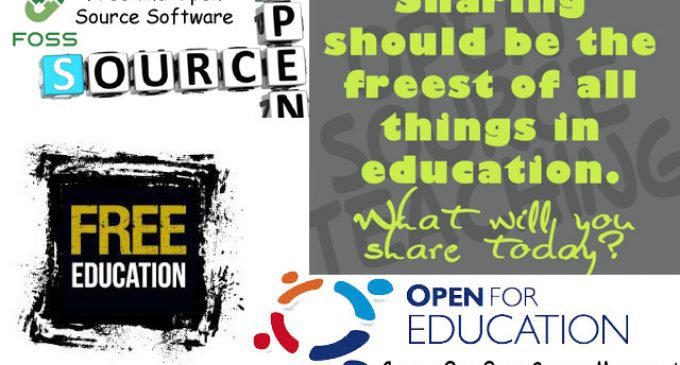

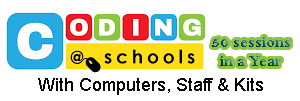

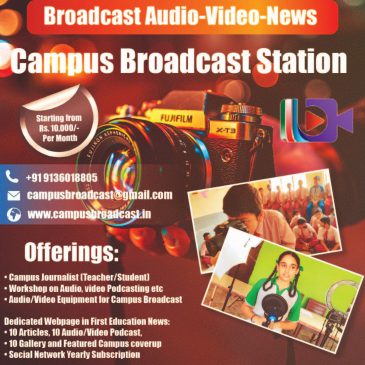
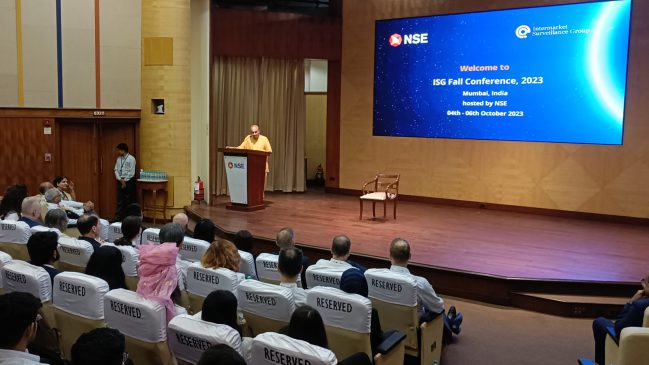
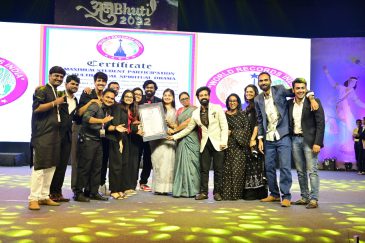


There are no comments at the moment, do you want to add one?
Write a comment